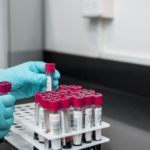Effective Surveillance

Antimicrobial resistance (AMR)
AMR develops when bacteria, fungi or viruses are exposed to antibiotics, antifungals or antivirals. As a result, the antimicrobials become ineffective and infections may persist. In addition, medical interventions including surgery, chemotherapy and stem cell therapy may become impossible.
AMR is considered the biggest global threat of Health and Food Safety.
AMR Insights
For Officers at authorities, ministries, international organisations and NGO’s who wish to prevent the further global spreading of Antimicrobial resistance, AMR Insights offers selected, global information and data, specific education and extensive networking and partnering opportunities.
AMR Insights is for:
- Senior officials and (top) civil servants at national authorities
- Policy Officers at Ministries
- Civil servants at regional authorities
- Senior officials at international organizations
- Senior officials at NGO’s
Latest Topics
-
 28 February 2026
28 February 2026Participation of South Centre Member Countries in the WHO GLASS: Progress and Gaps in AMR Surveillance and Stewardship Efforts
The study assesses how 55 South Centre Member States are engaging with WHO GLASS’s AMR and antimicrobial use surveillance, finding that while some progress has been made since GLASS’s 2016 inception, significant gaps remain: only about 60 % report antimicrobial resistance data and 38 % report antimicrobial use data to the system, with COVID-19 having […]
Read more... -
 27 February 2026
27 February 2026Antimicrobial Resistance Landscape in Africa: Perspectives from the WHO GLASS Report 2025
Antimicrobial resistance (AMR) is an increasing public health threat in Africa, where limited surveillance systems, weak laboratory infrastructure, and insufficient antimicrobial stewardship hinder effective control. Drawing on the WHO GLASS Report 2025, the commentary underscores the high burden of resistant infections across the continent, alongside gaps in diagnostic capacity and incomplete national surveillance coverage. Widespread […]
Read more... -
 27 February 2026
27 February 2026The AMR footprint: an integrative indicator in the global response to antimicrobial resistance
The article proposes a new way to track progress in the fight against antimicrobial resistance (AMR) by introducing the concept of an “AMR footprint” — similar to how we use a carbon footprint to measure environmental impact. Instead of relying only on traditional targets like mortality rates or antibiotic consumption, the AMR footprint brings together […]
Read more...
More news related to Effective surveillance





